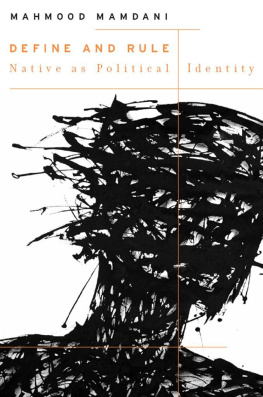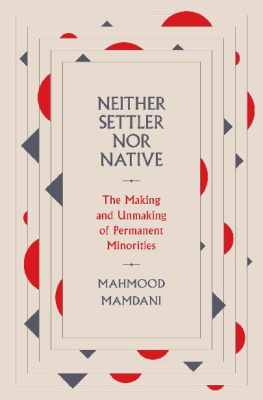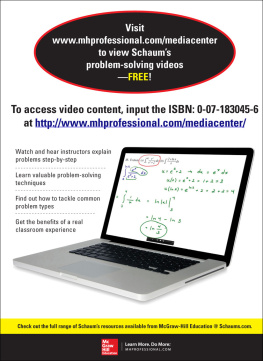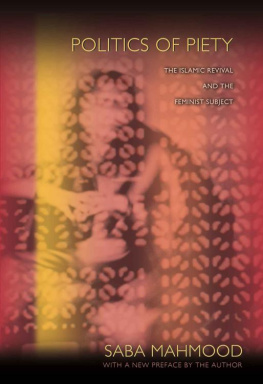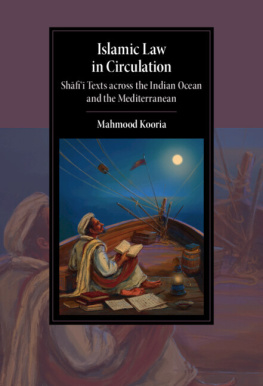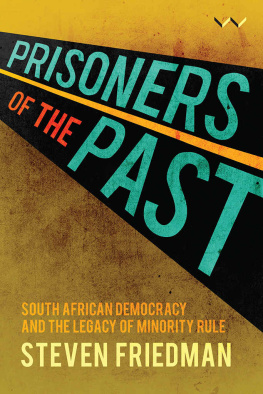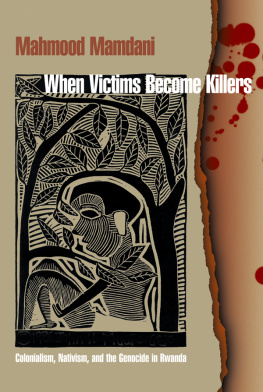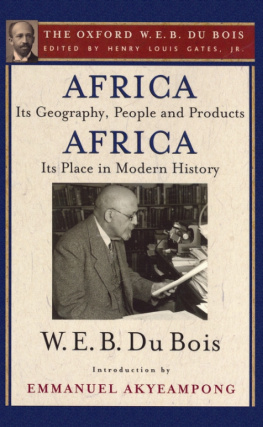Mahmood Mamdani - Define and Rule: 12 (The W. E. B. Du Bois Lectures)
Here you can read online Mahmood Mamdani - Define and Rule: 12 (The W. E. B. Du Bois Lectures) full text of the book (entire story) in english for free. Download pdf and epub, get meaning, cover and reviews about this ebook. year: 2012, publisher: Harvard University Press, genre: Politics. Description of the work, (preface) as well as reviews are available. Best literature library LitArk.com created for fans of good reading and offers a wide selection of genres:
Romance novel
Science fiction
Adventure
Detective
Science
History
Home and family
Prose
Art
Politics
Computer
Non-fiction
Religion
Business
Children
Humor
Choose a favorite category and find really read worthwhile books. Enjoy immersion in the world of imagination, feel the emotions of the characters or learn something new for yourself, make an fascinating discovery.
- Book:Define and Rule: 12 (The W. E. B. Du Bois Lectures)
- Author:
- Publisher:Harvard University Press
- Genre:
- Year:2012
- Rating:3 / 5
- Favourites:Add to favourites
- Your mark:
- 60
- 1
- 2
- 3
- 4
- 5
Define and Rule: 12 (The W. E. B. Du Bois Lectures): summary, description and annotation
We offer to read an annotation, description, summary or preface (depends on what the author of the book "Define and Rule: 12 (The W. E. B. Du Bois Lectures)" wrote himself). If you haven't found the necessary information about the book — write in the comments, we will try to find it.
Define and Rule: 12 (The W. E. B. Du Bois Lectures) — read online for free the complete book (whole text) full work
Below is the text of the book, divided by pages. System saving the place of the last page read, allows you to conveniently read the book "Define and Rule: 12 (The W. E. B. Du Bois Lectures)" online for free, without having to search again every time where you left off. Put a bookmark, and you can go to the page where you finished reading at any time.
Font size:
Interval:
Bookmark:
DEFINE AND RULE
The W. E. B. Du Bois Lectures
DEFINE AND RULE
Native as Political Identity
MAHMOOD MAMDANI
Harvard University Press
CAMBRIDGE, MASSACHUSETTS
LONDON, ENGLAND
2012
Copyright 2012 by Mahmood Mamdani
All rights reserved
Jacket Design: Jill Breitbarth
Jacket Art: Drawing 9-1-detail 3, from the series We are Beasts by Nadir Tharani
Library of Congress Cataloging-in-Publication Data
Mamdani, Mahmood, 1946
Define and rule : native as political identity / Mahmood Mamdani.1st ed.
p. cm.
Includes bibliographical references and index.
ISBN 978-0-674-05052-5
1. ColoniesAdministrationPhilosophy. 2. ColoniesAdministrationHistory. 3. DecolonizationPhilosophy. 4. DecolonizationHistory. I. Title.
JV412.M36 2012
325'.3dc23
2012004821
For Wawa
Contents
The inspiration for these lectures came from two sources: the first from a reading of W. E. B. Du Boiss The World and Africa in 2007. I realized that rather than just write about Africa, Du Bois located Africa in the context of world history. This meant writing about the world from an African vantage point. The second came from a question I was asked by Professor Andreas Eshete, then the vice chancellor at the Addis Ababa University, following a lecture I gave on British indirect rule: how, he asked, is this different from previous empires? I gave a long and somewhat convoluted answer, and, maybe just because of that, I left with a distinct feeling that I needed to give serious and further thought to this question.
The focus of these lectures is the indirect rule state, which I have come to understand as a quintessentially modern form of rule in a colonial setting. Indirect rule differed from modes of rule in previous Western empiresincluding Roman and British direct rule before mid-nineteenth century, and French assimilation before the early twentieth century turn to associationin two important ways. First, previous empires focused on conquered elites rather than the mass of the colonized. Second, they aimed to eradicate difference through a policy of cultural and sometimes political assimilation of colonized elites, whereas indirect rule claimed not just to acknowledge difference but also to shape it.
The management of difference is the holy cow of the modern study of society, just as it is central to modern statecraft. The shift from a homogenizing impulse to a preoccupation with defining and managing difference is most evident in the transition from direct to indirect rule. I argue that it is under indirect rule colonialism that the definition and management of difference was developed as the essence of governance. The difference between the modern democratic state and its colonial version is this: the modern state ensures equal citizenship in political society while acknowledging difference in civil society, but its colonial counterpart institutionalized difference in both the polity and society.
In the colonial indirect rule state, the tendency was to limit citizenship to the settler. I argue that, as a political identity, native was the creation of intellectuals of an empire-in-crisis. The key figure was Sir Henry Maine, who reflected on the post-1857 crisis of the British Empire in India. But there were also others, such as Christiaan Snouck Hurgronje, whose object of reflection was the Dutch imperial project in Aceh in the East Indies. Unlike what is commonly thought, native does not designate a condition that is original and authentic. Rather, as in Maine, the native is the creation of the colonial state: colonized, the native is pinned down, localized, thrown out of civilization as an outcast, confined to custom, and then defined as its product.
Under indirect rule, the governance of the native was the prerogative of the native authority. As a form of governance, native administration claimed to be faithful to tradition and custom, which it defined in the singular, more or less unchanged since time immemorial. No matter its local variations, a core set of rules defined the customary in indirect rule colonies. They functioned as the gold standard. The rules concerned land and governance. Land in a colony was defined exclusively as a composite of different homelands, each the home of a designated native tribe. Only those officially designated as natives could claim land rights in the tribal homeland. As a result, participation in public affairs was no longer the right of all those who lived on the land; instead, it became the exclusive preserve of natives said to belong to the homeland. Colonial privilege took two forms: racial and tribal. Both were based on legally sanctioned difference, and both were in turn taken as proof of that difference. If settler cosmopolitanism claimed to be a product of race difference, native particularism was said to reflect the authenticity of the tribe.
Anticolonial nationalism was the antidote to enforced difference; it underlined our common humanity. When it came to the nationalist project, however, there was no agreement. Some sought to turn the world of the settler and the native upside down; others were determined to change it so that both settler and native would cease to exist as political identities. When does a settler become a native? I asked this question in my inaugural lecture at the University of Cape Town in 1998 and answered: never. The only emancipation possible for settler and native is for both to cease to exist as political identities.
Settlers and natives go together: there can be no settler without a native, and vice versa. Either the two are reproduced together, or the two are abolished together. What produces them as political identities is a form of the state that distinguishes settlers from natives in law, at one time valorizing the settler, at another the native. To reform this state and to rewrite the historiography that undergirded the colonial political project and, in the process to historicize tradition so as to reclaim it, was the political challenge after independence.
The opening chapter will discuss the mode of indirect rule at its inception, both as an intellectual reflection on the mid-nineteenth-century crisis of empire by one of its seminal thinkers, Sir Henry Maine, and as a set of colonial reforms designed to ameliorate this crisis in India, the British colony of Malaya and the Dutch East Indies. The focus of is the elaboration of indirect rule in the African colonies. I elaborate on one case in particular: colonial Sudan in the aftermath of another major crisis of the empire, the Mahdiyya. The concluding chapters turn to the antithesis of this process: the movement for decolonization, in both its intellectual and political dimensions, first to discuss the equally seminal contribution of a Nigerian historian, Yusuf Bala Usman, who, I argue, provides the intellectual antidote to colonial historiographies, and the statecraft of Mwalimu Julius Nyerere, whose pioneering reforms not only effectively decolonized the indirect rule state but, in so doing, provide us with a nonviolent alternative to a Leninist vision of smashing the state. At the same time, these reforms drive a wedge between the nation-building project and the project for democracy and social justice, a question best left for later reflection.
A new form of colonial governmentality was born in the aftermath of the mid-nineteenth-century crisis of colonialism. Of the theorists who articulated the response to the crisis, the most important was Sir Henry Maine. Maine sought to recognize the historicity and the agency of the colonized as part of an endeavor to rethink and reconstitute the colonial project on a more durable basis. Through a theory of history and a theory of law, he distinguished the West from the non-West and a universal civilization from local custom. In the process, he distinguished the settler from the native, providing elements of a theory of nativism: if the settler was modern, the native was not; if history defined the settler, geography defined the native; if legislation and sanction defined modern political society, habitual observance defined that of the native. If continuous progress was the mark of settler civilization, culture was best thought of as part of nature, fixed and unchanging. The native was the creation of theorists of an empire-in-crisis.
Next pageFont size:
Interval:
Bookmark:
Similar books «Define and Rule: 12 (The W. E. B. Du Bois Lectures)»
Look at similar books to Define and Rule: 12 (The W. E. B. Du Bois Lectures). We have selected literature similar in name and meaning in the hope of providing readers with more options to find new, interesting, not yet read works.
Discussion, reviews of the book Define and Rule: 12 (The W. E. B. Du Bois Lectures) and just readers' own opinions. Leave your comments, write what you think about the work, its meaning or the main characters. Specify what exactly you liked and what you didn't like, and why you think so.

